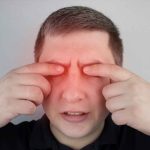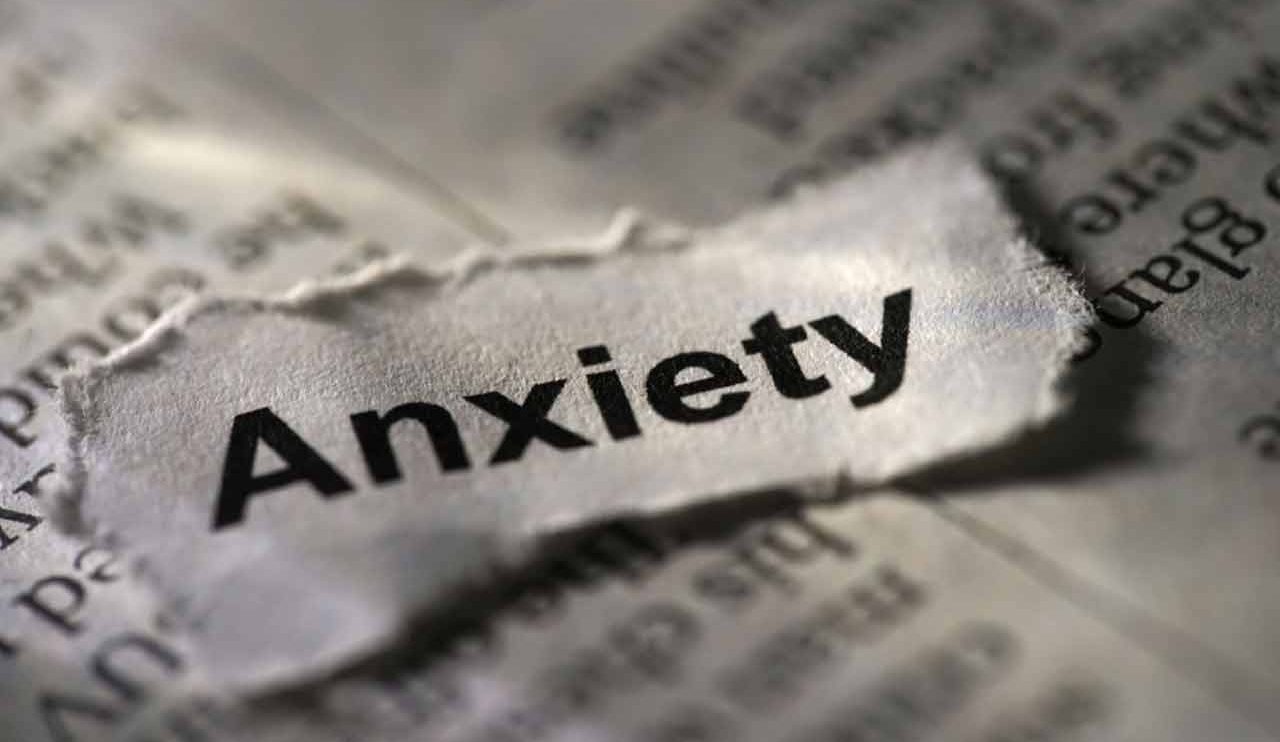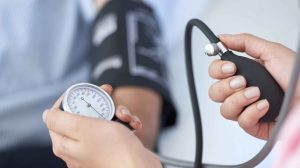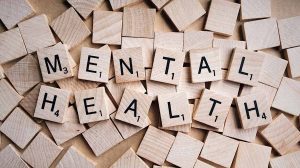What is anxiety disorder? What is it caused by? What are her symptoms? How long does it last? How do you diagnose? How are you treated? This one-off? will it come back Could there be complications? How do you live with anxiety? Instructions
What is anxiety disorder?
Anxiety disorders are the most common type of mental health problem affecting adults and children. Anxiety is the body’s natural emergency response to danger. Anxiety states appear in different forms and in different intensities and can cause a wide range of symptoms – from discomfort to accelerated heartbeats , tremors, sweating and dizziness.
Sometimes the anxiety is an exaggerated reaction to a real situation and sometimes it produces a phobia that causes the avoidance of various situations that are perceived as threatening. Anxiety can also attack following the very thought of the same situation or thing that is considered scary. There are spontaneous anxiety states that attack without any prior warning, and there are anxiety states that build gradually in response to meeting the object of anxiety. In some situations, anxiety becomes a distressing and extreme phenomenon that harms the quality of life.
Anxiety disorders are divided into several specific diagnoses:
• Generalized Anxiety Disorder (GAD).
• Obsessive Compulsive Disorder (OCD for short).
• Panic disorder (Panic Disorder).
• Posttraumatic stress disorder (Posttraumatic Stress Disorder – in short: PTSD).
• Social Anxiety Disorder.
• Simple/specific phobia (Specific Phobia).
What causes anxiety?
Anxiety disorders may develop from various factors, and it is not always possible to point to only one cause of the problem. It is common to think that anxiety stems from psychological factors (such as personality), from events that happened during life and lifestyle, and also from physiological factors such as heredity and chemical processes in the brain. What are the symptoms?
Anxiety has both physiological and psychological manifestations. The physiological manifestations can be accelerated heartbeats, muscle tension, dry mouth, sweating, nausea, diarrhea or discomfort in the digestive tract, cold and clammy hands, difficulty swallowing. The psychological manifestations of anxiety can be paralysis, irritability, detachment from oneself and even fear of insanity or death.
How am I compared to the others?
It is estimated that between 5% and 10% of the population suffer from anxiety disorders of varying intensity at any given moment. However, it should be taken into account that almost every person suffers from some kind of anxiety disorder during his life. Therefore the rate of those suffering from anxiety will jump sharply if we ask “Who has ever suffered from anxiety”? instead of “who suffers from anxiety”?
how long does it last
Through professional treatment, it is possible to help most people who suffer from an anxiety disorder. The speed at which treatment helps varies from person to person. Some people will respond to treatment after a few weeks, while others will need a year or even more. Sometimes the treatment is complex, because many times people suffer from several anxiety disorders at the same time or, in addition to the anxiety, they also suffer from other mental problems such as depression .
How do you diagnose?
The diagnosis is given by a professional (psychiatrist, psychologist, family doctor) based on a clinical examination (based on the symptoms he sees and based on the patient’s reports).
How are you treated?
In general, there are two treatment routes: the psychological route and the medication route. The psychological route is divided into several methods:
- According to the dynamic method, the anxiety arises from unconscious emotional factors that must be worked on in the treatment. In other words: anxiety attacks are a focused symptom that signals a deeper psychological problem, so there is no point in removing only the symptom since the real problem will remain and only change form. Therefore, according to this method, a long-term dynamic psychological treatment is necessary to get to the root of the problem and thus also to the solution (disappearance of the anxiety attacks).
- According to the cognitive (behavioral) method, anxiety attacks can be overcome with focused and short-term treatment and thereby improve the quality of life. Regardless of the factors that are responsible for the attack, the body and the mind can be taught methods to calm down and increase self-control that will reduce the fear of an attack and thus also reduce the probability of an attack occurring. This approach uses treatment techniques such as relaxation, guided imagery and hypnosis to enhance the effect of cognitive therapy. You can, of course, combine the two methods.
- The medical-pharmacological approach does not necessarily make assumptions regarding the causes of the phenomenon, but starts from the premise that for one reason or another there is an imbalance in the level of neurotransmitters (nerve conductors) in the brain – an imbalance that can be corrected with medication. In acute anxiety situations, it is advisable to use medication in combination with psychological therapy. It should be emphasized that the drug treatment does not put an end to the source of the problem, so the anxiety often returns after the drugs are stopped. The psychological treatment is designed to bring about long-term changes in tendencies and habits in order to prevent the effects of anxiety that harm the quality of life. These are the main drugs used to treat anxiety:
- Medicines from the Selective Serotonin Reuptake Inhibitors family (in short: SSRI). The drugs from this family increase the serotonin level in the brain through a mechanism that inhibits the absorption and breakdown of the serotonin level. Example drugs from this family: Plotin, Prisma, Lostral, Sertraline, Zoloft, Seroxat, Paxet, Cipramil, Recital and Cipralex. The treatment with these drugs is given daily for a long period of time (from several months to several years).
- Medicines from the Serotonin-Norepinephrine Reuptake Inhibitor family (abbreviated: SNRI). Medicines from this family inhibit the absorption and breakdown of both serotonin and norepinephrine. Example drugs from this family: Venlafaxine, Vanela, Viapex, Effexor, Ixel, Miro. The treatment with these drugs is given daily for a long period of time (from several months to several years).
- Medicines from the benzodiazepine family. These are also used as sleep medications, so there is a danger that those who use them regularly will become addicted to them. For this reason, it is generally recommended to use them for a limited time only or only to provide mental first aid. Example drugs from this family: Vavan, Bundormin, Lorriban, Klonx, and Acival .
This one-off? will it come back
Anxiety disorders can be one-time, but can also recur. The direction of their development depends on the factor that provoked them and the treatment given to overcome them. For example: if an anxiety disorder appeared in response to a one-time event that will not be repeated, there are good chances that it is a one-time reaction.
On the other hand, if we are dealing with anxiety disorders that are not necessarily related to an external event, the recurrence of the phenomenon depends on a set of factors – both genetic and environmental. The type of treatment given also has a great effect: for example, if the treatment was mainly based on medication, there is a high probability that the anxiety will recur when the medication is stopped. On the other hand, if the treatment was combined and included both medication and psychological therapy – the anxiety may not recur at a high intensity, and even if the anxiety attacks return at a lower intensity – the patient will have the ability and tools to deal with them.
Could there be complications?
Anxiety disorders impair day-to-day functioning, and this may have serious consequences for family life, social life and career.
What are the warning signs that require an immediate visit to the doctor?
Anxiety disorder is not a medical emergency, but it is definitely recommended to seek medical help when a decline in functioning begins. Without treatment, the severe complications mentioned earlier may arise.
How soon will I “come back to myself”?
Drugs from the benzodiazepine family usually take effect within half an hour. SNRI and SSRI drugs usually take effect after two to three weeks. The psychological treatment can provide a feeling of accompaniment and support from the very first moment, and its results can be felt afterwards for a lifetime.
How do you learn to live with anxiety disorders?
Anxiety can become a distressing phenomenon that harms the quality of life. In order to treat it, you need to understand the contexts in which it appears, and you also need to learn how to deal with it and even how to “make friends” with it, that is, accept that in certain situations it appears naturally. All these can be achieved through psychological therapy.












Add Comment